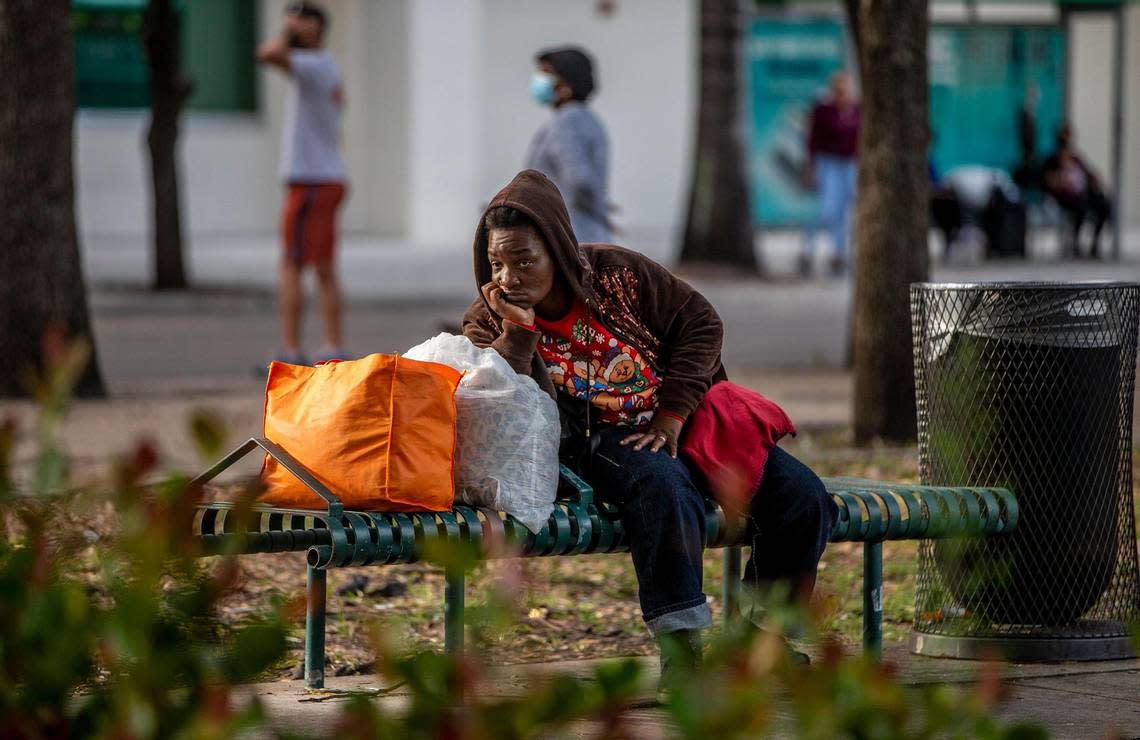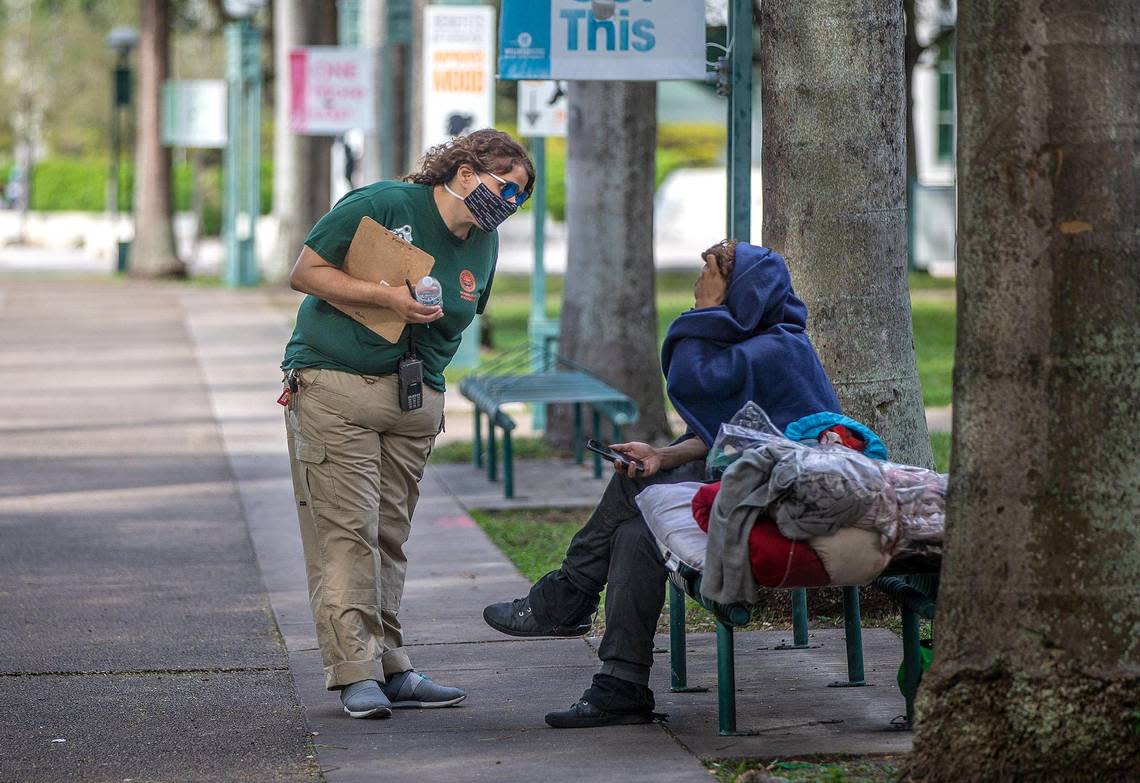County could fight Miami’s plan for tiny homes for homeless on island. Here’s why
Miami-Dade Mayor Daniella Levine Cava criticized Miami’s plans to build tiny homes on Virginia Key for homeless people because it could be expensive, far from social services, harm the environment and ignore the history of segregation at the nearby historic beach park.
Levine Cava issued a memo outlining her concerns one week after Miami’s commission approved a pilot program to build 50 to 100 small dwellings on a stretch of land near the northeast shore of Virginia Key. The memo underscored the opposition from the county commissioner who represents the area, Raquel Regalado, who said she would fight the plan and even consider taking the city to court to have the county reclaim ownership of part of Virginia Key.
Levine Cava wrote that county staff estimated it could cost up to $3 million to run water and sewer lines to the site near the island’s northeastern shore and the project could hamper the county’s effort to preserve Virginia Key’s sensitive environment. Levine Cava said that the proximity to Virginia Key’s historic site of the former segregated Black beach during the Jim Crow era “would likely create significant friction within the community and fails to recognize the historic significance of the site.”
The mayor said that extremely low-income housing is a better solution, and the proposed transition zone is not close enough to hospitals and other social services.
“A transitional housing site far from basic services is likely to exacerbate the problem,” Levine Cava wrote.
READ MORE: Miami considering moving homeless people to island in Biscayne Bay
Miami Commissioner Joe Carollo proposed the idea as a way to humanely provide temporary shelter away from city neighborhoods, where residents have complained about tents, furniture, human waste and urine on residential streets. He said he envisions social services being offered onsite.
City staff have developed a preliminary concept that was approved July 28 when Carollo, Chairwoman Christine King and Commissioner Alex Díaz de la Portilla voted in favor.
In her memo, Levine Cava said her staff is still looking into whether the city’s plan violates land restrictions put in place when the county deeded land on Virginia Key to the city in 1982. The deed restriction could be the basis of a movement to take ownership of the land away from the city.
During a county virtual information meeting Thursday evening, Regalado said she wants to explore the idea of providing different forms of shelter elsewhere, but she is willing to take major steps to fight the city’s plan because “Virginia Key is 100% the wrong location.”

Opposition mounting
Meanwhile, neighboring Key Biscayne is watching closely. Mayor Mike Davey said the village would fight any plan that moves forward with moving homeless people to Virginia Key, but he thinks the concept is unlikely to clear the logistical hurdles.
“How are they going to get the infrastructure out there?” he said, referring to the lack of water, sewer and electricity on the undeveloped land.
Housing advocacy organization Miami Homes For All objected to the plan in a statement this week on social media. The group said the site is isolated from social services and transit, and the best solution is permanent affordable housing.
“Creating more temporary solutions to homelessness is not best practice, extremely costly, and diverts funding away from the evidence-based solution that would help these individuals: deeply affordable housing with on-site supportive services,” a post on the group’s Instagram account said. “This solution is proven to be most effective and also the least costly to taxpayers.”

The agency that manages the formerly segregated beach park south of the proposed transition zone, the Virginia Key Beach Park Trust, was not consulted before the Miami commission’s vote on July 28. The Trust’s chairman, N. Patrick Range II, told the Herald the park has historical value that his organization has sought to promote as a comfortable place for families to spend time together.
“We have church baptisms, birthdays, weddings, and other special events,” Range said. “So the concern would be the proximity, the potential danger of having homeless persons moving in and about the park as they please.”
Range, a land use attorney, said the city might have to change the land’s zoning to build the transition zone, which could make the land vulnerable to pressure from private developers to eventually build something else there later on.
King, the Miami commission’s chairwoman, has pushed back against critics in a series of statements. She questioned why there hasn’t been outrage over sidewalks in Overtown being blocked by homeless people in tents, or outcry over children in Liberty City who have to walk by people living on the street, human waste and syringes on the way to school.
“My vote was an effort to avoid attempts to place the encampment in District 5, which is one of the poorest areas in our City,” King said in a statement on Instagram. “The issue of homelessness received a few head shakes and sad looks as long as it was in the poorest neighborhoods, where Black people live. But now that the encampment is proposed to be situated in an affluent area, there is explicit outrage. The hypocrisy!”
King also pushed back on the idea that the tiny home site has anything to do with the beach park.
“This encampment is NOT proposed to be placed on the Historic Black Beach and is in fact more than a mile away from the beloved area,” she wrote. “Those who are claiming otherwise are endeavoring to hide the true cause of their objections.”
